Safety first on the “contact line”
As Covid-19 restrictions have gradually eased throughout Ukraine, freedom of movement across the 427-kilometre-long frontline for millions of people living in non-government-controlled areas remains mostly limited.
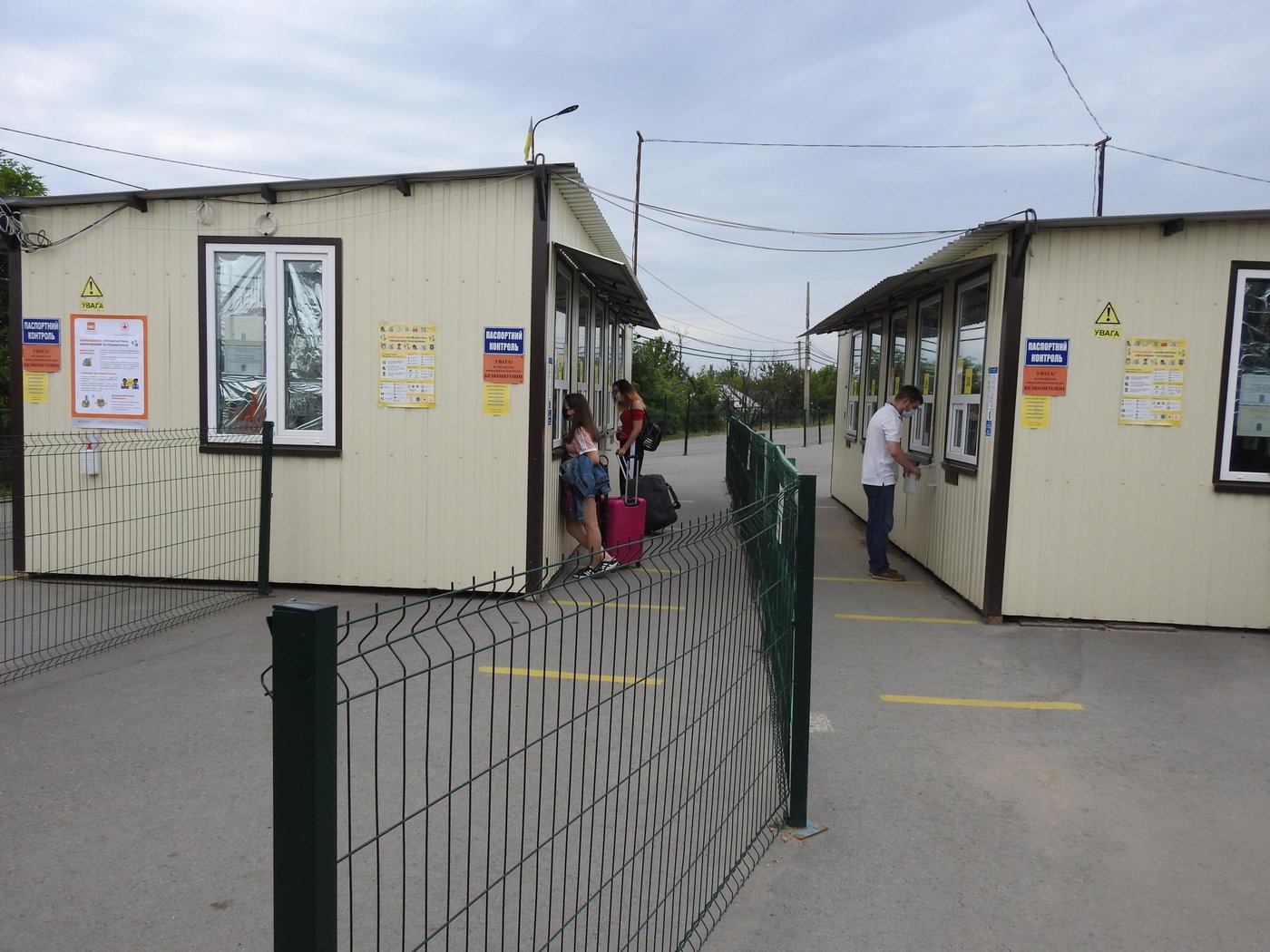
Civilians regularly become stranded in the “grey zone” – the space between two crossing points on the front line which is not controlled by the parties in the conflict. They can spend several days in tents surrounded by mine-contaminated fields. Those who are able to cross are subject to self-isolation. They may be tracked via special mobile applications or observed in a health facility for 14 days. This means that the vast majority who seek to cross for just a few hours to collect their pensions or access services are unable to do so.
Crossing points lack essential services such as hygiene facilities, drinking water and first aid equipment. There is a high risk of infection unless sanitation and hygiene conditions are improved.
NRC is working to improve the conditions at these crossing points by providing hand sanitiser and improving sanitary conditions. We are also distributing information to increase people’s knowledge on how to protect themselves and prevent the spread of the virus.
The financial impact of Covid-19
According to our recent food security and livelihoods assessment, almost eight out of ten families in the Donetsk and Luhansk regions have been negatively affected by the financial consequences of Covid-19. These include increases in the prices of food and hygiene items, additional transport costs and loss of household income during the four months of national quarantine.
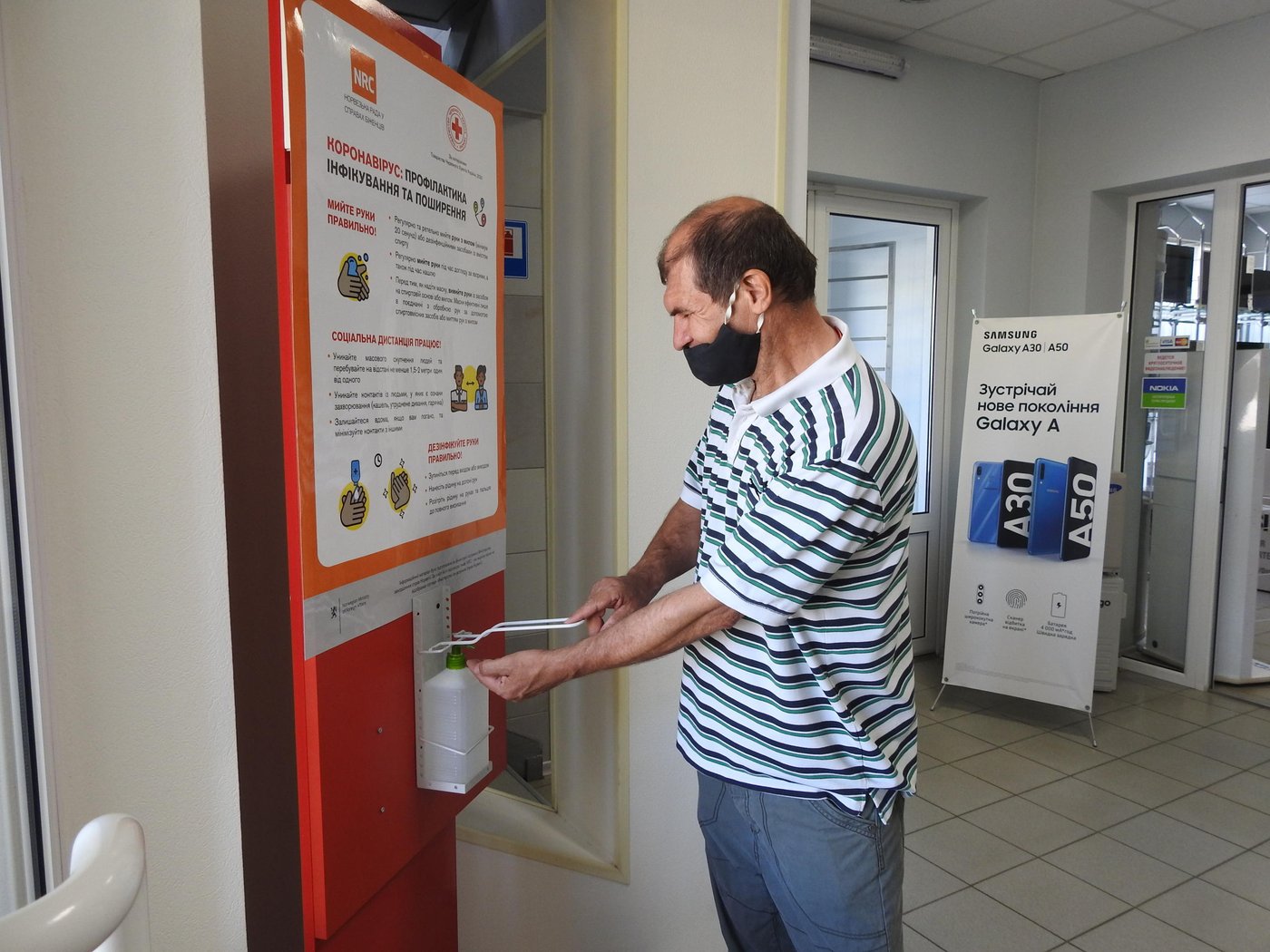
Mykola, 56, is one of the people affected. “It affected my family so much,” he says. “My son and daughter-in-law live in Kharkiv and they lost their jobs due to Covid-19. I am a pensioner. My pension is my only source of income. As I live with my elderly mother, I should look after her. But the prices for food and medical services have increased significantly, and we are not able to cover our needs anymore.”
We have been able to continue to provide emergency cash assistance during lockdown by working with other service providers to avoid increasing the risk of infection.
Virtual legal protection
Given the rapid development of the Covid-19 situation and the corresponding legal changes, we have seen a need to strengthen our efforts to protect those affected by the conflict.
To ensure vulnerable people continue to receive legal information and counselling, we have increased the capacity of our hotline and introduced additional communication means such as Skype and Viber. We have also updated our information materials to include all new relevant information coming from the government, including recent announcements about displacement issues and rules for crossing the “contact line”.
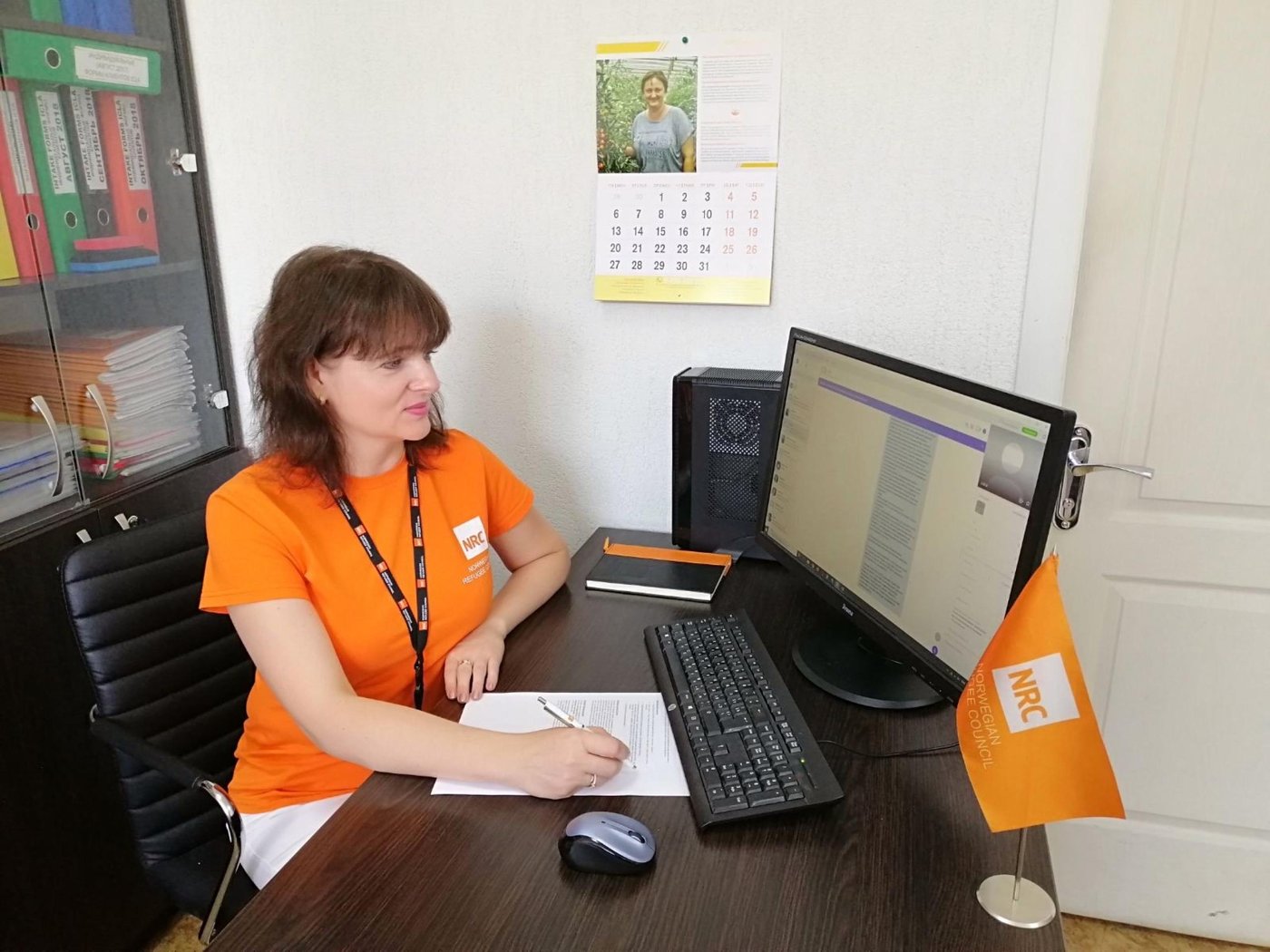
“The hotline allows us to compensate for the significant reduction in field presence. Our legal officers, in some cases, have managed to enable people to use electronic court procedures, allowing them to protect their rights without attending court hearings or even crossing the contact line,” says Maksym Solovey, our information, counselling and legal assistance project manager.
Being on the frontline
There is a particular concern that eastern Ukraine – ravaged by six years of armed conflict, weakened health systems and an ageing population – risks facing a Covid-19 outbreak of considerable scale. Healthcare workers are not only at higher risk of infection but can also amplify outbreaks within healthcare facilities if they become ill.
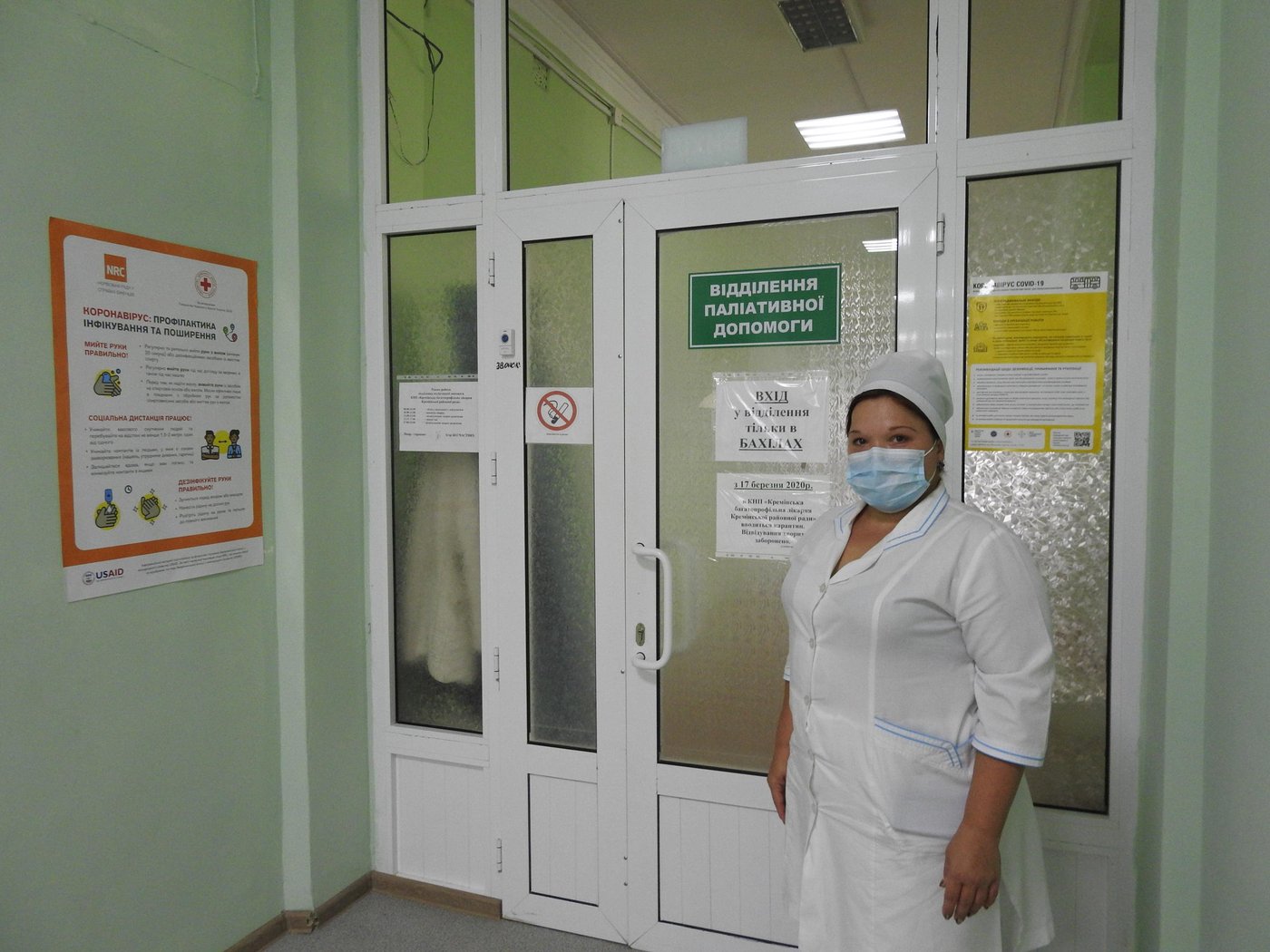
“No-one knows when exactly this virus awaits us. We urge all people to follow the well-known rules of protection,” says Natalia Sapronova, 39, head nurse of the palliative care department of the Luhansk regional hospital.
We provided the palliative care department in the city of Kreminna with sanitising equipment to help protect patients, as well as the health workers serving them.
Helping the hardest hit
Despite the many unknowns surrounding Covid-19, there is evidence that older people are at the highest risk. There is a significant proportion of elderly people in Ukraine – approximately 23 per cent of the population are aged 60 or above. Almost all of them have at least one chronic illness, making them extremely susceptible to Covid-19.
Tetiana Zelenska, 35, works for the regional centre for social services, providing single low-income older people and people with disabilities with home care, in-kind targeted assistance and social adaptation.
“During the first half of 2020, we managed to serve over 1,800 people despite the quarantine. From 13 March onwards, we stopped admitting new patients at the centre. However, we did not stop supporting people at home,” says Tetiana. “They are extremely vulnerable and have no-one to help them. They die, or get sick and find themselves in difficult situations. Many of our employees save lives. NRC provided us with hand sanitiser dispensers, which we ask visitors to use when entering the ward.”
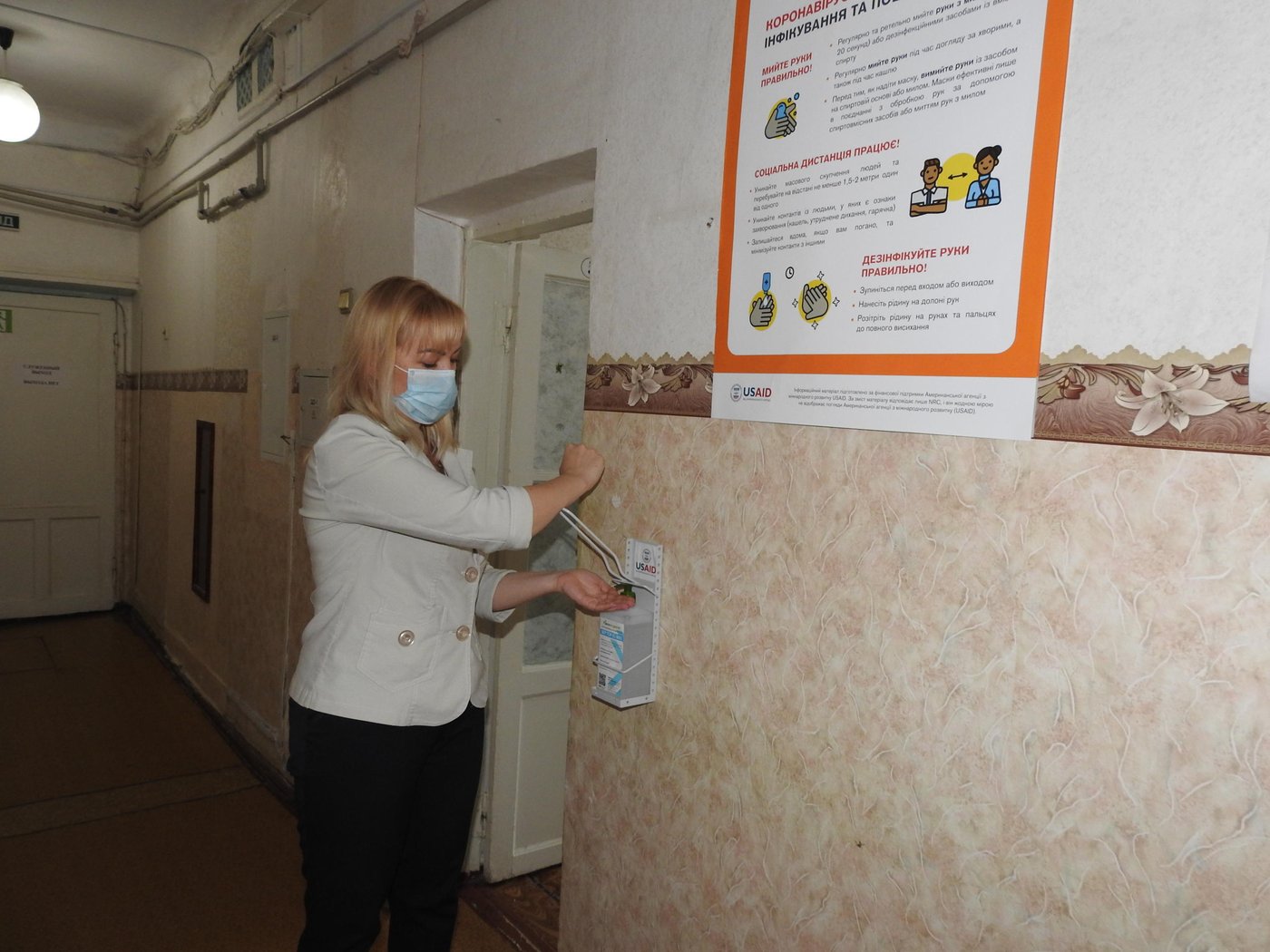
NRC's response:
- By mid-August, we had installed 1,800 hand sanitiser stations and distributed 17,000 litres of the antiseptic liquid at crossing points, shops, administrative buildings, social institutions and on public transport.
- Since the beginning of the quarantine, we have provided legal aid services to 1,570 people via remote communications means.
- In the first half of 2020, we granted cash assistance to 8,703 of the most vulnerable people in eastern Ukraine.

